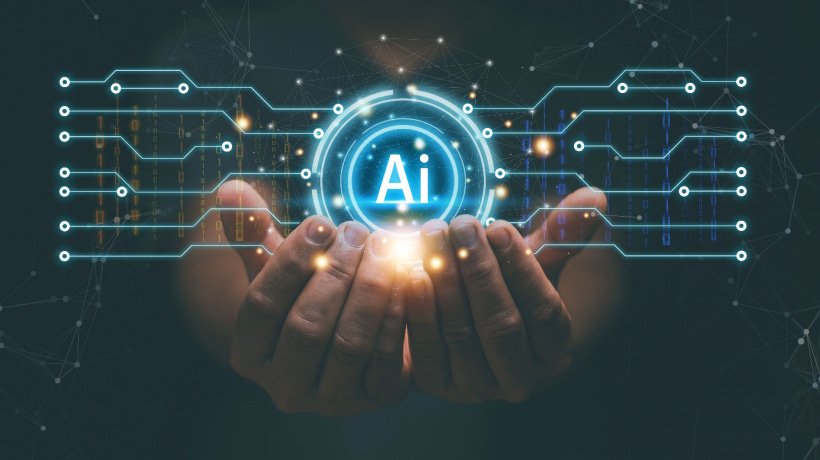Enhancing Learning Experiences With AI
This is 2025, a time when a new Large Language Model (LLM) is created every week, and top companies are enhancing their existing models to solve real-world problems with ease. In the past, people had to rely on standard web pages for information and had to skim through an entire page to grasp the key points they were looking for. This process was time-consuming, inefficient, and often frustrating. With the advent of Artificial Intelligence (AI), and specifically generative AI (genAI), which can skim and summarize vast amounts of content, people now need much less time to acquire knowledge and upgrade their skills. Similarly, AI can create wonders when implemented directly into eLearning materials, greatly benefiting learners.
This article lists a few key instances where AI can fundamentally enhance the learning experience and elevate a learner's knowledge with remarkable ease and efficiency.
How AI Can Elevate Your eLearning Materials
Content Curation
AI's ability to curate content is a revolutionary step in learning design. Unlike human curators who are limited by time and the scope of their knowledge, AI can analyze and synthesize information from a massive dataset. It helps to curate learning content for any type of learner, from any type of file—be it a text document, a video transcript, or a complex spreadsheet. This allows AI to follow an optimal perspective and the best approach for training, ensuring a highly efficient and personalized learning experience. Through this intelligent curation, content can be made crisp, to-the-point, and redundancy-free. This streamlined delivery of information directly benefits the learner by minimizing confusion and cognitive overload.
Variety Of Approaches And Adaptive Learning
One of the biggest challenges in traditional eLearning is the one-size-fits-all approach. However, AI has access to numerous sources of content, which helps in choosing the best approach for presenting information. It can analyze a learner's profile, including their past performance, role, and stated preferences, to suggest different learning paths. For instance, if a learner is a visual thinker, the AI might present information through infographics and diagrams. For a more auditory learner, it might favor video and audio-based content. This is the essence of adaptive learning, where the AI dynamically adjusts the content and delivery method in real time. This personalization ensures that the learner receives content in a format that best suits their individual needs, without altering the core learning objective.
Unlimited Access To Knowledge
When AI or genAI is embedded as a tool in eLearning materials, it can serve as a vast knowledge base, far exceeding a simple FAQ section. Learners can access this information with simple conversational prompts, asking for clarification on a concept, exploring a related topic, or seeking a different explanation. There is no time limit on the information that can be accessed through AI; information from the past, present, and even future predictions can be obtained. For example, a learner studying a historical event can ask the AI about its long-term consequences, while someone learning about market trends can query it for the latest data. Very little is outside the reach of AI, making it an invaluable on-demand tutor.
Peak Efficiency
Why should learners have to skim through huge amounts of information that can be overwhelming and hinder knowledge retention? Implementing AI in eLearning materials can do the heavy lifting, furnishing learners with only the key points they need to remember. Consider an employee who needs to understand a new 100-page company policy. Instead of reading the entire document, an AI tool can quickly summarize the key changes, highlight the parts most relevant to their specific role, and provide a list of action items. This way, a learner's knowledge retention can be enhanced with minimal time consumption, freeing them up to focus on applying what they've learned.
eLearning Materials With No Expiration
Every learning material has an expiry period, after which its content becomes obsolete due to new data, regulations, or technological changes. This is not the case with AI-embedded learning materials. By designing your eLearning with a dedicated space for AI (e.g., adding a hyperlink to an AI chatbot), you can make the material eternal. The AI can continuously update its knowledge base, providing the most current and relevant information to the learner, even years after the course was initially developed. This makes the eLearning durable and, from an economic perspective, highly cost-effective by eliminating the need for frequent and expensive content overhauls.
Analyzing Learning Patterns
Modern Learning Management Systems (LMSs) now support AI integration, which allows for powerful analysis of a learner's behavior. Through this, you can feed a learner's learning pattern to AI for analysis, which can identify challenges or areas for improvement. The AI can detect when a learner is struggling with a concept, getting bored, or skipping certain sections. It can then generate a personalized, real-time feedback loop. By reviewing a learner's entire history, the AI can create a clear and efficient learning plan, ensuring they receive the support they need to succeed.
Final Word
While the benefits are significant, it is vital to remember the ethical considerations of using AI in learning. Issues such as data privacy and algorithmic bias must be addressed to ensure a fair and secure learning environment. Furthermore, AI should be viewed as a tool to augment the human element, not replace it. The empathy, context, and personalized mentorship provided by human instructors remain irreplaceable.
Ultimately, while AI offers powerful tools to enhance and personalize the learning experience, it's crucial to use them wisely to avoid missing out on valuable, nuanced information that can only be understood through a complete review of the topic. The future of learning is a collaborative partnership between human expertise and AI's capabilities.
Editor's Note: The views expressed in this article reflect the author's personal opinion and are not meant to be representative of eLI's viewpoints. If you want to explore the usage of AI in eLearning further, take a look at our list of Top Content Providers With AI Tools Expertise.









